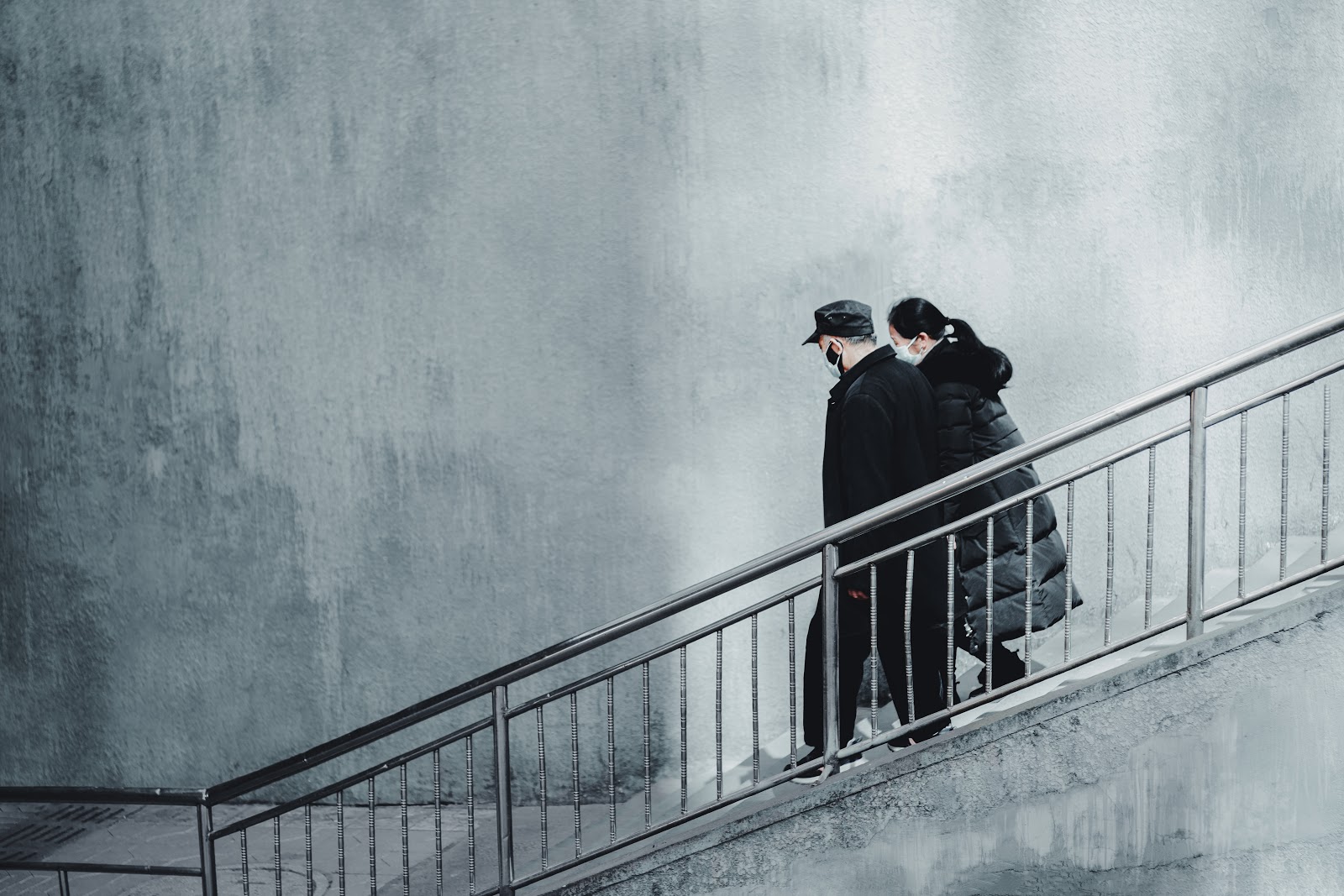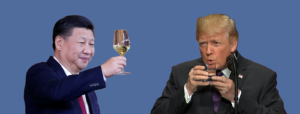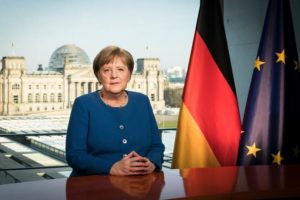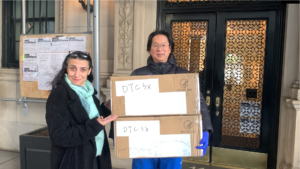The U.S. Stalls and China Fires Up – COVID-19 Updates for March 23, 2020

Photo by Cheng Fend on Unsplash
Dear readers,
We appreciate you trusting us to bring you interesting, quality coverage of the global COVID-19 pandemic. As a New York-based, China-focused news organization, this historic event and its impact on everyone everywhere couldn’t be closer to the core of our mission to educate, inform, and unite communities around the world, in particular in the U.S. and China.
In the coming days we’re going to bring you recommendations of ways you can help your community and communities around the world to cope with the outbreak and its economic impact. This article from the Washington Post provides a good start.
If we worry only about ourselves, we’re all on our own. If each of us puts even $10 towards the next-most-at-risk person after ourselves, we’re in this together.
Our personal first-choice for those in the U.S. is Meals on Wheels, which brings food to seniors and special-needs individuals who are most at-risk in society. Find a chapter near you.
Please write to us with your ideas for how to support those in need at editors@thechinaproject.com.
On to the news!
**Breaking updates **
- The 2020 Summer Olympics in Tokyo will be postponed
- For the second time in less than 24 hours, the U.S. congress has failed to pass its $2 trillion financial relief package, leaving global markets in flux
COVID-19: the ultimate game-changer
Global cases of COVID-19 surged almost 50% over the weekend — from 246,000 last Friday to more than 367,000 today.
The 30% drop in U.S. and many other global financial markets was the fastest sell-off ever, faster even than the Great Depression that began in 1929. It’s unclear how much worse it could get.
Most news and analysis of COVID-19 has focused on the immediately important details of what is happening and how we can or should respond to it.
But a growing number of voices have begun to assess what the long-term impact of the pandemic will be.
- The Coronavirus might kill globalization (Bloomberg)
- The coronavirus is a game-changer for mental health (MIT Technology Review)
- The coronavirus’s unexpected silver lining: the environment (Fortune)
- The lessons of COVID-19: working from home (The China Project)
And some voices point out that it’s too soon to tell. The general failure of multilateralism (or conversely, the rise of nationalism) and the need for most countries to prioritize economic re-growth instead of greening the economy may counterbalance whatever silver linings may come from the crisis. Also, some behavior changes in response to the outbreak may or may not actually reduce energy consumption or pollution — depending on where you live and what you consume.
The U.S. and China switch places
For much the past 50 years, the U.S. has led global diplomacy, especially during times of crisis.
At present, however, the U.S.’s botched handling of the COVID-19 pandemic has left the country haggling internally over how to respond and with an unprecedented shortage of basic medical supplies, even in “the best city in the world” where employees of Columbia University Irving Medical Center have been given one mask each and told they are responsible for keeping it clean.
Meanwhile, China is pushing for the global leadership position in the COVID-19 crisis, sending medical equipment and experts to support countries around the world.
While the headlines talk about the U.S. beginning to release inmates to lessen the strain on overwhelmed prison and healthcare facilities, China’s richest man is sending masks and testing kits to countries around the world ‒ including the U.S.
China’s economy emerges from COVID-19
While much of the U.S., Europe, and the rest of the world is just entering shutdown mode to combat the spread of COVID-19, China is just coming out of it.
Shanghai, the financial center of the country and its most international city, just downgraded its alert level from Level One to Level Two (one is the most serious), after entering the elevated status on January 24th, almost two months ago. Even Wuhan, the city where the virus first emerged and where more cases have been reported than any one other area globally, has announced that it will begin to ease lockdown measures, resuming public transportation and allowing people to go back to work.
Not so fast: Despite official Chinese figures reporting few to no new domestic COVID-19 cases, “authorities continue to detect more infections, with those in the city at the heart of the country’s outbreak often amounting to more than a dozen a day,” according to Beijing-based investigative business magazine Caixin. So be wary of the numbers coming from Beijing.
Double economic whammy: While China may have survived its own shutdown, now it must also survive the shutdown of the rest of the world. Chinese factories have been empty for over two months as the government prevented employees from going to work. Now, they may go to work but have no orders to fill, as global demand for practically everything except masks and ventilators has tanked.
Around the world in 30 seconds
Hong Kong has banned non-residents from visiting, and prohibited bars from serving alcohol in response to a second wave of imported coronavirus cases. (Bloomberg via Caixin)
Italy is “slowing industrial production nationwide, while the hardest-hit region of Lombardy has banned any outdoor exercise not on personal property and set distance limits on dog-walking.” (Euronews)
Syria reported its first coronavirus infection, prompting citizens to “stock up on food and fuel Monday amid fears that authorities would resort to” stricter containment measures. Iran “reported another 127 coronavirus deaths, bringing its death toll to 1,812 amid 23,049 confirmed cases.” (GlobalNews.ca)
Spain’s Prime Minister Pedro Sanchez said “We are at war,” and called on Europe “to launch a massive, coordinated public investment programme like the post World War Two Marshall Plan.” The country’s death toll jumped to over 1,700 over the weekend, with more than 28,000 cases of infection. (Reuters)
Angola, Eritrea, and Uganda confirmed their first cases. Africa’s most populous country, Nigeria, plans on closing its two main international airports in the cities of Lagos and Abuja from tonight. (AfricaNews.com). The total number of cases across the continent of Africa has surpassed 1,000 (Andalou Agency).
In the U.K., scientists are still warning that the government is not doing enough. (Independent)
In Australia, the government’s response is changing under scrutiny. (ABC Australia) New Zealand has put the country on lockdown. (New Zealand Herald)
Cure and vaccine radar
- These drugs are helping our coronavirus patients (WSJ)
- WHO launches global megatrial of the four most promising coronavirus treatments (Science Magazine)
- Scientists are racing to find the best drugs to treat COVID-19 (The Verge)






